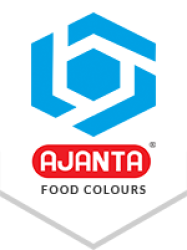Portugal, officially known as the Portuguese Republic, is a beautiful country situated on the Iberian Peninsula in Southwestern Europe. The country shares its land border only with Spain to the east and north. The country also has a sea border with the Atlantic Ocean to the west and south which gives the country a long coastline of stunning beaches and seafaring heritage.
The economy of Portugal is classified as developed and high-income, driven by tourism, agriculture, services, and industrial manufacturing. The manufacturing sector plays a crucial role in the Portuguese economy as it contributes 11.9% of the country's GDP. In the manufacturing of any product, various components play a crucial role, one of which is Colour. It makes the product appealing which attracts the attention of customers and boosts the product sales.
In Portugal, colour manufacturers prepare colour, but they are unable to produce it on a large scale that fulfills all the country's colour-related demand. To fill this gap and make a profit, many big colour merchants, distributors, and traders import colour from other countries like India, Spain, and France. They sell these colours in the Portuguese market and make a profit on each sale.
Portugal Industries Where Colours Play a Vital Role
Portugal boasts a diverse industrial landscape where colours play a vital role in several sectors. Some of the key industries where colours play an important role.
Food and Beverage Industry
One of the challenges that food and beverage manufacturers in Portugal face is choosing the right colour for their products. Colour is an important factor that influences consumer perception, preference, and purchase decisions. However, natural colours may not always provide the desired quality, stability, and consistency that manufacturers need. Synthetic colours, on the other hand, offer a wide range of advantages for the food and beverage industry. Synthetic colours are more stable, resistant to heat, light, and pH changes, and can produce vibrant and uniform shades that appeal to consumers. Synthetic colours can also help manufacturers boost their sales by creating attractive products, enhancing product differentiation, and meeting consumer demand for variety. Some of the major places in Portugal where food and beverage manufacturing industries are located are Lisbon, Porto, Braga, and Coimbra. According to Statista, the revenue of the Portuguese food market amounts to US$32.50bn in 2025, and it is expected to grow annually by 3.20% (CAGR 2025-2030).
Cosmetics Industry
Portugal's cosmetics manufacturers often encounter challenges when selecting the perfect colours for their products. Issues like finding the right shades, ensuring stability, and meeting regulatory requirements can be daunting. However, synthetic colours have emerged as a reliable solution to these problems. Synthetic colours offer consistent shades, improved stability, and compliance with regulatory standards, making them an ideal choice for cosmetics. By using synthetic colours, manufacturers can enhance their product quality, leading to increased customer satisfaction and product loyalty. This boost in product quality and reliability ultimately drives sales, helping cosmetics manufacturers establish their brands in the market. Most cosmetics manufacturing industries in Portugal are concentrated in major cities like Lisbon, Porto, and Braga, where skilled labor and infrastructure support the industry's growth. According to Statista, the revenue of the Cosmetics market of Portugal amounts to US$203.12 million, and it is expected to have an annual growth rate of 3.92% (CAGR 2025-2030).
Pharmaceutical Industry
One of the challenges that pharmaceutical manufacturers in Portugal face are choosing the right colours for their products. Colours play an important role in the quality, stability, and identification of drugs and other pharmaceuticals. Synthetic colours are the solution for pharmaceutical manufacturers who want to ensure the consistency, stability, and safety of their products. Synthetic colours also have many benefits, such as helping consumers to figure out the right drug and dosage, enhancing the appearance and attractiveness of the medicines, and creating a distinctive brand identity. By using synthetic colours, pharmaceutical manufacturers can boost their sales, customer satisfaction, and reputation in the market. Portugal has a well-developed pharmaceutical industry, with many manufacturing facilities located in Lisbon, Porto, Coimbra, and Braga. According to Statista, the revenue of the pharmaceutical market in Portugal is expected to reach US$2.57 billion, and it is expected to grow annually with 4.86% (CAGR 2025-2030), resulting in a market volume of US$3.26bn by 2030.
Chocolate Industry
Manufacturers of chocolate in Portugal face many challenges while choosing the right colours for their products. The colour of chocolate can affect its appeal, quality, and stability. For example, a perfect shade of brown can indicate freshness and richness, while a dull or faded colour can suggest spoilage or poor quality. Synthetic colours are the solution to this problem, as they offer many benefits for chocolate makers. Synthetic colours are more stable and consistent than natural colours, which can vary depending on the source and processing. Synthetic colours can also create vibrant and attractive shades that appeal to more customers, especially children and women. Studies have shown that synthetic colours are safe for consumption and do not pose any health risks to children or adults. By using synthetic colours, chocolate manufacturers in Portugal can boost their sales and product recognition and differentiate their products from competitors. Portugal has a long tradition of chocolate making, and some of the most famous chocolate factories are located in Lisbon, Porto, Aveiro, and Coimbra. According to Statista, the revenue of the Confectionery market of Portugal amounts to US$4.89 billion in 2025, and it is expected to grow annually by 3.08% (CAGR 2025-2030).
Animal Feed Industry
Animal feed manufacturers in Portugal need to choose the best colours for their products. Colours can make a difference in animal feed quality, stability, and appeal. They can also affect the animal's health and performance. Synthetic colours are the best choice for animal feed. Synthetic colours are stable, consistent, and durable. They can improve the look and taste of animal feed, making it more attractive to the animals and the customers. Synthetic colours can help animal feed manufacturers in Portugal increase their sales, build their reputation, and compete in the market. Besides, synthetic colours can help customers tell apart different kinds of animal feed, such as poultry, swine, or cattle. The animal feed industry is a key part of the Portugal economy, as it supports the production of meat, dairy, eggs, and other animal products. Santarém, Leiria, Aveiro, and Setúbal are important regions for the animal feed industry. These regions have good conditions for agriculture and livestock farming, making them ideal places for the production of animal feed. According to Statista, the revenue of the pet food market of Portugal is projected to reach US$103.61 million in 2025, and it is expected to show an annual growth rate (CAGR 2025-2029) of 10.08%, resulting in a projected market volume of US$152.14 million by 2029.
Cultural Preferences of Colours in Portugal
In Portugal, cultural preferences for colours are influenced by various factors such as history, traditions, and personal tastes. For example, the colour blue is often associated with the sea and the sky, evoking feelings of calmness and tranquility. Green is linked to Portugal's lush landscapes and symbolizes nature and fertility. Red, on the other hand, represents passion, energy, and warmth, reflecting the country's vibrant culture and Mediterranean climate. Portuguese manufacturers strategically use these colours in their products to appeal to local consumers and boost sales. For instance, food and beverage companies might use vibrant reds and greens in their products to convey freshness and flavor, while chocolate producers may opt for rich blues and browns to evoke a sense of luxury and indulgence. Similarly, cosmetics brands may utilize soft pastel hues like pink and lavender to convey femininity and elegance. By incorporating culturally relevant colours into their products, Portuguese manufacturers can establish their brands in the market and connect with consumers on a deeper level.
Regulatory Guidelines on Colours in the Portuguese Market
In Portugal, regulatory guidelines on colours in products like food, drinks, pharmaceuticals, and cosmetics are overseen by the Portuguese Food and Economic Safety Authority (ASAE) and the National Institute of Pharmacy and Medicines (INFARMED). These guidelines ensure that colours used in these products are safe for consumption and application, meeting specific quality standards. By adhering to these regulations, customers can trust the safety and quality of the products they use. For manufacturers, complying with these guidelines is crucial to ensure their products are legally sold in the market and to maintain consumer trust. With ASAE and INFARMED overseeing compliance, consumers can feel confident in the products they purchase, knowing they meet stringent safety standards.
Launching a new product in the Portugal market is also tough for startups, as they have to face many established brands. To gain an advantage, the startups need to distinguish their products and make them attractive to customers. Ajanta Food Colours provides premium and high-quality colours that help Portugal startups to create products that draw attention and differentiate from the rest. This improves their product visibility and increases their sales.
If you are a manufacturer or startup business in Portugal and looking for a high-quality colour supplier in Portugal, Ajanta Food Colours is the best option for you. Ajanta Food Colours is a reputed colourant manufacturer with over 75 years of expertise. They produce top-notch colours that are popular worldwide. Ajanta exports its colourants to many European nations, including Spain, France, and others. The company meets the colour demand in the Portugal market as well.
Ajanta Colours has obtained various certificates that confirm the quality and safety of its colours. It has an FDA certificate, an ISO 9001:2015 certificate for its quality management system, a HACCP certificate for its food safety system, a HALAL certificate for its adherence to Islamic dietary laws, a KOSHER certificate for its compliance with Jewish dietary laws, etc.
Ajanta Food Colours stands out as a great option for Portugal businessmen looking for a dependable colours exporter. The company offers a range of benefits, such as competitive prices and timely delivery, ensuring cost-effectiveness and quick access to products. Their dedication to customized solutions and technical support improves the overall customer experience. Ajanta Food Colours provides a wide range of colours and applications, serving diverse needs in the market. The company's commitment to maintaining consistent product quality and performance adds reliability to its offerings. With a focus on customer satisfaction and building loyalty, Ajanta Food Colours emerges as a reliable partner for businesses seeking high-quality colour solutions.
To know more about Ajanta Food Colours and its Supra range of colours, or for any other information, please contact us today!





